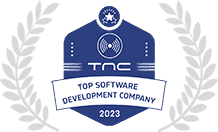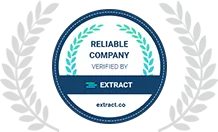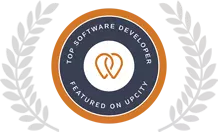Enterprise Resource Planning (ERP) systems have become critical for businesses aiming to streamline operations, manage finances, and ensure seamless collaboration. Two leading ERP solutions, NetSuite and SAP, offer powerful features to meet these needs. But how do you choose the right one for your business? In this article, we compare NetSuite and SAP to help you make an informed decision.
NetSuite ERP: An Overview
NetSuite is a cloud-based ERP system that offers a complete suite of applications designed for growing businesses. It integrates core business functions like financials, inventory management, customer relationship management (CRM), eCommerce, and more.
Key Features of NetSuite
NetSuite provides businesses with several powerful features that make it a popular choice, including:
- Real-time data: Access to up-to-the-minute data for decision-making.
- Customizable Dashboards: Tailor your user interface to meet your specific business needs.
- Cloud-Based System: No need for costly on-premise hardware.
- Scalable Solution: Perfect for small to large enterprises as it can grow with your business.
- Integrated Modules: Financial management, inventory control, CRM, and eCommerce in one platform.
Advantages of NetSuite
- Ease of Implementation: Since NetSuite is cloud-based, deployment is typically faster than many other ERP solutions.
- Lower Total Cost of Ownership (TCO): With no need for physical infrastructure, businesses can save on upfront costs.
- Comprehensive Reporting: Generate reports and insights quickly with customizable templates and dashboards.
SAP ERP: An Overview
SAP, one of the oldest and most established names in ERP, offers robust, on-premise and cloud-based solutions. SAP provides modules designed for various industries, making it ideal for large enterprises with complex requirements.
Key Features of SAP ERP
- Deep Industry-Specific Solutions: SAP offers tailored solutions for industries such as manufacturing, healthcare, and retail.
- Advanced Analytics: SAP’s ERP offers tools for predictive analytics and machine learning.
- Global Compliance: SAP’s system is compliant with international financial regulations and tax laws.
- Modular Approach: Businesses can select only the modules they need, making it highly customizable.
- Integrated Business Processes: From finance to supply chain, SAP covers all areas of business.
Advantages of SAP
- Highly Customizable: SAP can be tailored to meet the specific needs of large enterprises.
- Scalable for Global Operations: SAP is designed for large, multinational corporations, offering support for multiple currencies and languages.
- Strong Data Security: With advanced encryption and compliance measures, SAP is highly secure.
NetSuite vs SAP: Features Comparison
When choosing an ERP, it’s important to compare the core features of NetSuite and SAP side by side. Below is a breakdown of key features:
| Feature | NetSuite | SAP |
|---|---|---|
| Deployment | Cloud-based | On-premise or cloud-based |
| Customization | Moderate | Highly customizable |
| Target Business Size | Small to medium enterprises | Medium to large enterprises |
| Industry Focus | Broad (Finance, Retail, etc.) | Industry-specific solutions |
| Ease of Use | User-friendly | Complex, steep learning curve |
| Scalability | Highly scalable | Designed for global enterprises |
| Reporting | Real-time, customizable reports | Advanced reporting and analytics |
| Integration | Seamless with other Oracle tools | Strong integrations with SAP tools |
Pricing Comparison: NetSuite vs SAP
Pricing is always a critical factor when choosing an ERP. Here’s how NetSuite and SAP differ in cost:
NetSuite Pricing
NetSuite operates on a subscription-based pricing model, which depends on the number of users, modules selected, and the size of your business. The upfront costs are generally lower as it is cloud-based, but costs may increase with additional users or add-ons.
SAP Pricing
SAP typically has a higher total cost of ownership (TCO), especially for large enterprises requiring custom solutions. SAP offers a modular pricing structure, and companies often incur significant costs related to implementation, consulting, and maintenance.
| ERP System | Starting Price | Additional Costs |
|---|---|---|
| NetSuite | $99/user/month | Add-ons, training, support |
| SAP | $1000s for licensing & setup | Customization, implementation, maintenance |
Which ERP is Easier to Implement: NetSuite or SAP?
Implementation time can significantly affect your business, especially when migrating from another system. Here’s how NetSuite and SAP compare:
- NetSuite: The cloud-based architecture means faster implementation. Many small and medium businesses can deploy NetSuite in a matter of months.
- SAP: Due to its complexity, SAP can take longer to implement, often several months to a year. Large enterprises with complex requirements usually need more customization and training.
Scalability: How Well Do NetSuite and SAP Grow with Your Business?
- NetSuite: Ideal for businesses looking for a scalable solution. As your company grows, you can easily add users, modules, and capabilities.
- SAP: While also scalable, SAP is designed for large enterprises, making it more suitable for companies operating on a global scale.
Customization: Which ERP Offers More Flexibility?
- NetSuite: NetSuite provides a range of customization options, including the ability to create custom fields, workflows, and dashboards. However, it is not as customizable as SAP.
- SAP: SAP is renowned for its ability to be customized to an enterprise’s exact specifications. From custom modules to tailored business processes, SAP can be adapted to virtually any need.
Support and Maintenance: What Can You Expect?
Both NetSuite and SAP offer comprehensive support options, but there are key differences:
- NetSuite: Offers 24/7 support as part of its subscription model. The cloud-based nature of NetSuite also means updates are automatic, reducing the burden on your IT team.
- SAP: Support can vary depending on the package. On-premise solutions may require dedicated IT teams to manage updates, patches, and ongoing maintenance.
Security: How Do NetSuite and SAP Protect Your Data?
- NetSuite: Uses Oracle’s cloud infrastructure, which ensures high levels of security, including encryption, multi-factor authentication, and compliance with data privacy regulations like GDPR.
- SAP: Provides robust security features such as encryption, role-based access control, and compliance with global standards like ISO and SOC. SAP’s advanced security measures make it ideal for enterprises handling sensitive data.
NetSuite vs SAP: Which One Should You Choose?
Choosing the right ERP depends on your business size, industry, budget, and long-term goals. Here’s a quick guide to help you decide:
- Choose NetSuite if you are a small to medium business looking for a cost-effective, cloud-based ERP that is easy to implement and scale.
- Choose SAP if you are a large enterprise with complex business processes that require a highly customizable and scalable ERP solution.
FAQs About NetSuite vs SAP
- What is the main difference between NetSuite and SAP?
- NetSuite is cloud-based, while SAP offers both on-premise and cloud options.
- Which ERP is better for small businesses?
- NetSuite is generally more suitable for small to medium-sized businesses.
- Can SAP be used by small businesses?
- While possible, SAP is often more complex and costly, making it a better fit for large enterprises.
- Is NetSuite easier to implement than SAP?
- Yes, NetSuite’s cloud architecture allows for faster and more straightforward implementation.
- How does pricing compare between NetSuite and SAP?
- NetSuite has a subscription-based model, whereas SAP can involve higher upfront costs.
- Which ERP has better customer support?
- Both offer robust support, but NetSuite’s cloud model offers more hands-off maintenance.
- Is SAP more customizable than NetSuite?
- Yes, SAP offers deeper customization options.
- Does NetSuite support multiple languages and currencies?
- Yes, NetSuite supports global operations with multi-language and currency features.
- Which ERP is more secure?
- Both are highly secure, but SAP’s advanced encryption and compliance measures are ideal for large enterprises.
- What industries does NetSuite serve?
- NetSuite is widely used across industries such as retail, manufacturing, finance, and healthcare.
- Does SAP provide industry-specific solutions?
- Yes, SAP offers tailored modules for industries like manufacturing, healthcare, and more.
- Which ERP has better real-time reporting?
- Both systems offer real-time reporting, but NetSuite’s interface is more user-friendly for smaller businesses.
- How to Optimize Inventory Management with NetSuite - October 4, 2024
- Best Practices for Customizing NetSuite to Meet Business Needs - October 4, 2024
- How to Successfully Migrate Your Business Data to NetSuite - October 4, 2024




















